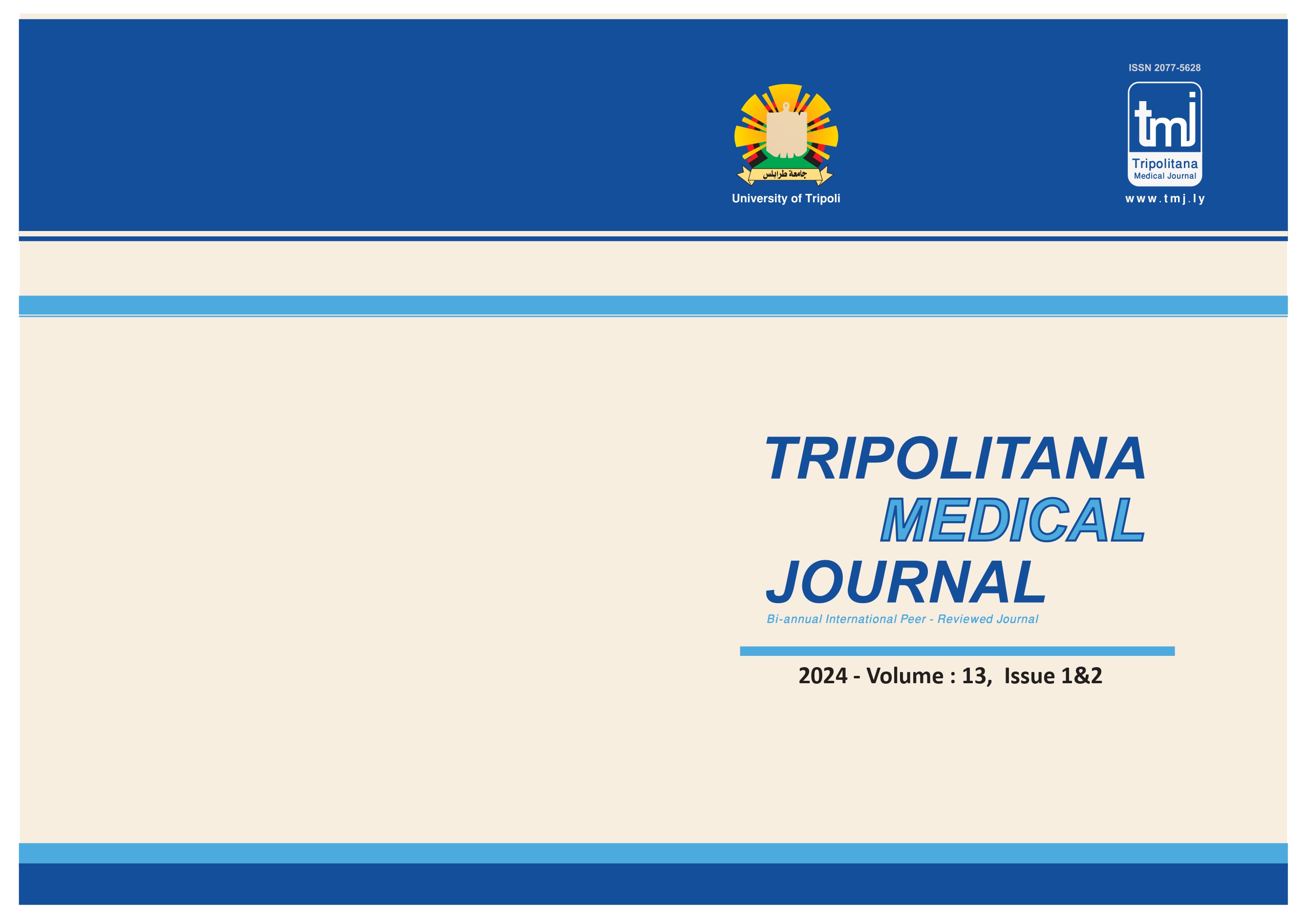Vitamin C Effect on Dementia Induced by Scopolamine Hbr in Mice (Histological Study)
الكلمات المفتاحية:
Dementia; Scopolamine hydrobromide;l Vitamin Cالملخص
Dementia is a deterioration in cognitive ability, which affects memory, and behavioral and psychological symp
toms. Scopolamine hydrobromide is a muscarinic receptor antagonist that induces memory impairment and oxi
dative stress. Vitamin C is a strong antioxidant agent; its deficiency may be associated with an increased risk
of dementia. This work aims to find out the effect of vitamins C on behavior in dementia induced in mice using
scopolamine hydrobromide. The brain histological effect of vitamin C on dementia induced by scopolamine hy
drobromide in albino mice is studied. Method: Male albino mice were divided into ten groups of six each. Group
1: Administered T80(1%) for one week, Group 2: Administered scopolamine HBr at a dose of 6 mg/kg for one
week, Group 3: Administered vitamin C at a dose of 500mg/kg for one week, Group 4: Administered scopolamine
HBr plus vitamin C for one week, Group 5: Administered scopolamine HBr for one week, followed by vitamin C
administration for another one week, Group 6: administered scopolamine plus Donepezil for one week.
Drugs were administered by intraperitoneal route, at the volume of 5ml/kg body weight. All drugs were freshly
prepared; mice were killed by neck dislocation; the brains were immediately removed, inserted in 10% formalin,
and sent to the histology department, for brain histological study. Results and conclusion: Dementia model in
duced by scopolamine HBr, showed mild mononuclear cellular (lymphocytic) infiltration and aggregation, mild
vascular proliferation, and perivascular edema. In the cerebral cortex, focal gliosis with microglial proliferation
and distributed astrocytes was observed. Some shrunken neurons exhibited eosinophilic cytoplasm and shrinkage
of basophilic nuclei. The hippocampus was unremarkable. Brain histological studies showed oxidative changes
in vitamin C treated group compared to the control; vitamin C may act as a pro-oxidant. The combined treatment
of vitamin C and scopolamine HBr produce more damage to cerebral cortex and hippocampus. The damage was
severe when vitamin C is administered after scopolamine HBr




